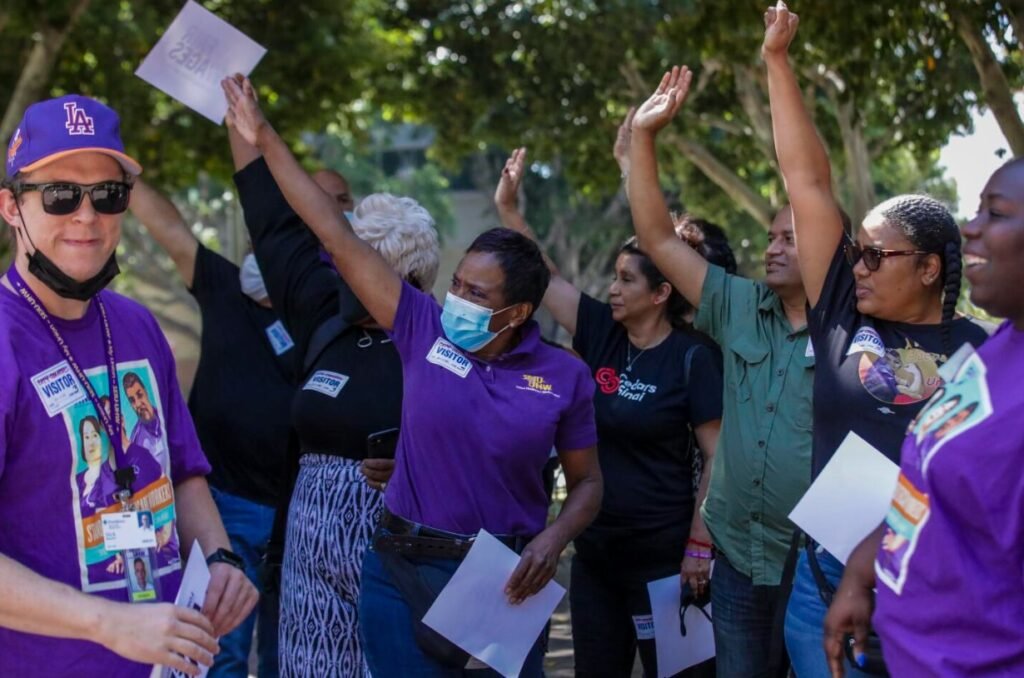California Governor Gavin Newsom signed a bill on Friday that will gradually increase the minimum wage for health care workers to $25 per hour by 2033. The bill, SB 525, was sponsored by Senator María Elena Durazo and supported by labor unions and health care industry groups.
A Compromise Between Labor and Industry
The bill is the result of a compromise between labor unions, especially the Service Employees International Union (SEIU), and health care industry groups, such as hospitals, dialysis centers, and community clinics. The SEIU had been pushing for a higher minimum wage for health care workers for years, arguing that they deserve fair compensation for their essential and demanding work, especially during the COVID-19 pandemic.
The health care industry had opposed previous attempts to raise the minimum wage for health care workers, citing the financial burden it would impose on them and the state. California’s Medicaid program, which covers low-income and disabled people, is a major source of revenue for many health care providers. The state would have to increase its Medicaid payments to cover the higher wages, which could cost billions of dollars annually.
To avoid a costly and contentious ballot initiative campaign, the two sides reached an agreement in the final days of the legislative session. The SEIU agreed to drop its efforts to regulate the dialysis industry through ballot measures, which it had pursued for several years. The health care industry agreed to support the $25 minimum wage bill, which also preempts any local ordinances that would set a higher minimum wage for health care workers.

A Historic Investment in Health Care Workers
The bill will raise the minimum wage for health care workers in most settings to $25 per hour over the next decade. The current state minimum wage is $14 per hour for employers with 26 or more employees and $13 per hour for smaller employers. The state minimum wage is scheduled to reach $15 per hour by 2023 for larger employers and by 2024 for smaller employers.
The bill will phase in the $25 minimum wage for health care workers starting in 2025, with annual increases of $0.50 or $1.00 depending on the size of the employer and the type of health care setting. The bill excludes some categories of health care workers, such as home health aides, personal care aides, and independent contractors.
The bill’s supporters hailed it as a historic investment in health care workers, who make up about 12% of California’s workforce. They said that raising their wages would improve their quality of life, reduce their reliance on public assistance programs, and address the shortage of health care workers in the state.
“Californians saw the courage and commitment of healthcare workers during the pandemic, and now that same fearlessness and commitment to patients is responsible for a historic investment in the workers who make our healthcare system strong and accessible to all,” said Tia Orr, executive director of SEIU California.
A Mixed Legislative Season for Labor
The bill is the second minimum wage increase that Newsom has signed this year. Last month, he signed a bill that will raise the minimum wage for fast food workers to $20 per hour by 2028. Both bills were the result of negotiations between labor unions and industry groups.
However, Newsom also vetoed some bills that were favored by labor unions, such as a bill that would limit the use of self-driving trucks and a bill that would extend unemployment insurance benefits to striking workers. Newsom cited cost concerns and legal challenges as reasons for his vetoes.
Newsom’s decisions on labor bills come after he survived a recall election last month, in which he received strong support from labor unions and their members. Newsom is expected to run for re-election next year.
